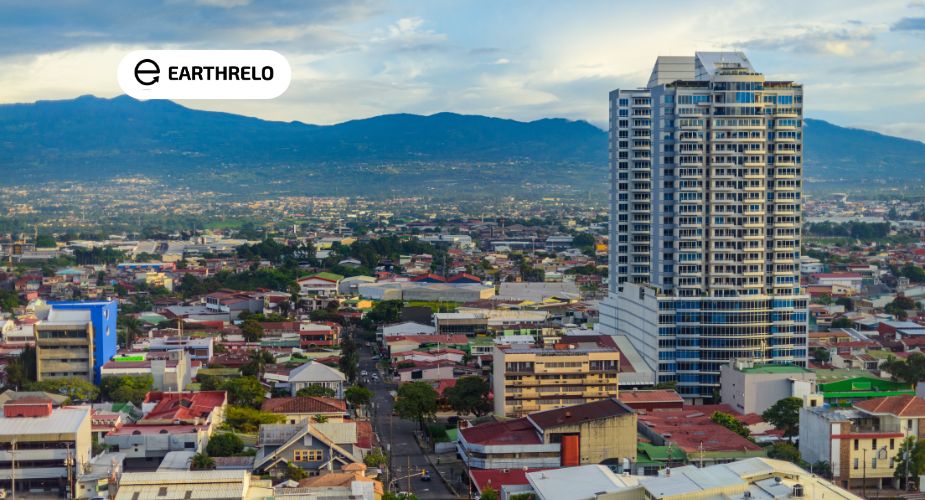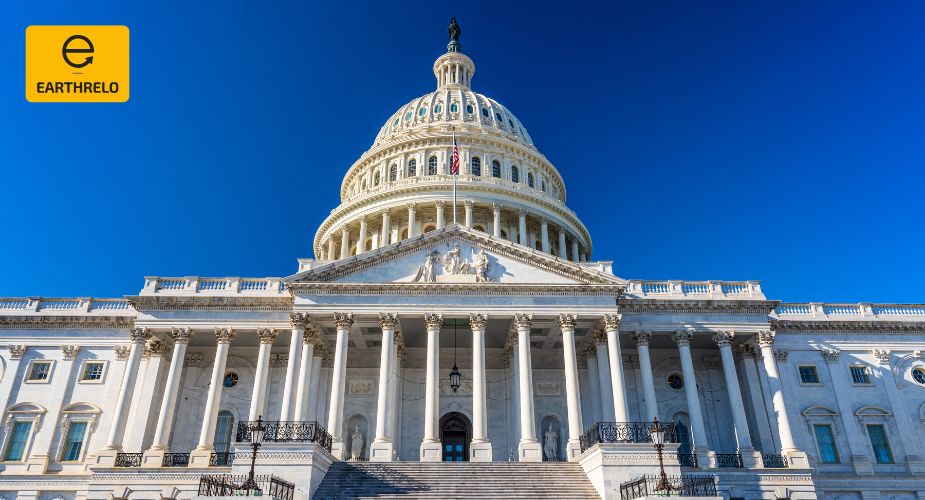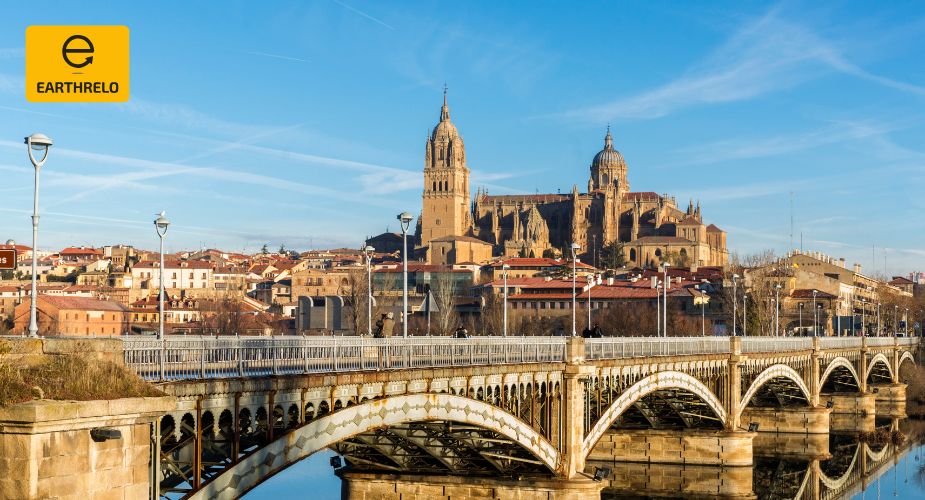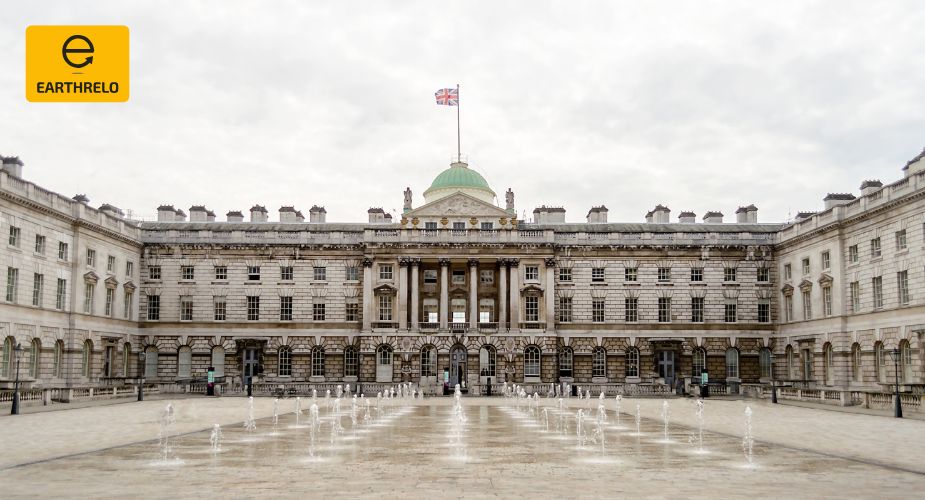- November 26, 2024
Costa Rica has become a popular destination for expats seeking a simpler, more affordable lifestyle in a beautiful, tropical setting. Known for its natural beauty, warm climate, and welcoming locals, Costa Rica offers a slower pace of life that aligns with the “pura vida” philosophy, meaning “pure life.” From lush rainforests and pristine beaches to a culture rooted in environmental consciousness, Costa Rica provides a unique living experience that many find appealing.
For those considering the move, living in Costa Rica comes with numerous advantages. The cost of living is relatively low compared to the U.S., and the quality of healthcare and social services makes it an attractive option for retirees and families alike. Before making this big change, it’s essential to understand the ins and outs of daily life, costs, and best places to settle. With Earthrelo’s expertise in relocation services, transitioning to life in Costa Rica can be both manageable and enjoyable.
Understanding the Cost of Living in Costa Rica
When planning a move, one of the first questions most people ask is: “How much does it cost to live comfortably in Costa Rica?” Compared to North America, living in Costa Rica can be quite affordable, but understanding the specific costs is essential to setting a realistic budget.
Monthly Budget Expectations
- Housing Costs: Monthly rent can vary significantly based on location. Urban centers and expat-favored areas may have higher rent costs, while rural or less populated regions can offer more affordable housing options. For a modest apartment, expect to pay around $500 to $1,500 per month, depending on the region and amenities.
- Utilities and Internet: Basic utilities, including electricity, water, and garbage collection, cost between $50 and $150 monthly, depending on the climate and energy usage. Reliable internet is available in most regions, averaging $30 to $60 monthly.
- Groceries and Dining Out: For groceries, expats typically spend around $300 to $500 monthly. Dining out is also affordable, with local meals costing as little as $5 in small eateries, while larger restaurants may charge $10 to $20 for a full meal.
Affordable Living Areas
- Central Valley: The Central Valley, including cities like Heredia and Alajuela, is a popular choice among expats due to its mild climate, affordable housing, and proximity to the capital, San José. This area also has access to good healthcare and shopping amenities, making it ideal for retirees or those wanting a balance of city and suburban life.
- Coastal Towns: Coastal areas, especially on the Pacific coast, offer beautiful beaches and a laid-back vibe. Towns like Tamarindo and Dominical are popular among expats for their active social scenes and access to nature. While coastal living can be slightly more expensive, it remains affordable by North American standards.
Balancing Lifestyle and Budget
Maintaining a budget while living in Costa Rica doesn’t mean giving up a comfortable lifestyle. In fact, with the lower cost of goods, services, and even household help, many expats find they can live well on a modest income. For example:
- Transportation Costs: Cars are more expensive due to import taxes, but public transportation is affordable and widely available. Taxis and buses are common options, especially in urban areas.
- Healthcare Savings: High-quality healthcare is accessible through both public and private systems, typically at a fraction of U.S. prices. Many expats take advantage of this to save on medical costs.
Moving to Costa Rica!
Contact Us TodayFinding the Right Place to Live
Costa Rica is known for its diversity, offering a variety of living environments, from beach towns and mountain retreats to bustling urban areas. Choosing the right place to settle is essential for a comfortable experience when living in Costa Rica. Each region has its unique advantages, catering to different lifestyle preferences.
Popular Expat Regions
- Escazú
Just outside San José, Escazú is one of the most popular locations for expats. It offers a blend of modern amenities, including shopping centers, international schools, and upscale restaurants, making it a prime choice for families and professionals. Despite its urban feel, Escazú retains a quiet, suburban charm with access to green spaces and hiking trails. - Atenas
Known for its favorable climate, Atenas is located between San José and the Pacific coast. This small town attracts retirees and families seeking a peaceful environment with easy access to both the capital and the beach. Atenas also has a close-knit expat community, making it easier for newcomers to connect and settle in. - Tamarindo
Tamarindo, located on the Pacific coast, is a beach lover’s paradise. Known for its surf-friendly beaches and vibrant nightlife, Tamarindo appeals to younger expats and retirees alike. Living in Costa Rica’s coastal areas like Tamarindo also means enjoying stunning sunsets, water activities, and a laid-back vibe. - Heredia
For those who enjoy the mountains, Heredia offers a cooler climate and beautiful landscapes. Located near San José, Heredia combines small-town charm with access to city amenities, including shopping, dining, and healthcare. It’s a great choice for expats who enjoy hiking, coffee farms, and local culture.
Housing Options
- Renting vs. Buying
Renting is a popular choice among expats, particularly for those who want to explore different areas before committing to one. Rental costs vary based on location, with beachfront or city-center properties generally costing more. For long-term residents, buying property can be a viable option. Unlike some countries, Costa Rica allows foreigners to purchase real estate, providing a stable investment for those who plan to stay. - Types of Housing Available
Housing options range from apartments and condos to single-family homes and luxury villas. While cities and coastal areas have modern apartments and condos, rural towns often feature more traditional homes. The choice ultimately depends on personal preferences and lifestyle goals while living in Costa Rica.
Community and Lifestyle
- Expats and Local Connections
Most popular expat regions offer a blend of international and local communities, helping newcomers feel at home. Social clubs, events, and community groups make it easy to meet others and share experiences, enhancing the sense of belonging. - Proximity to Essentials
Accessibility to daily essentials like supermarkets, healthcare, and entertainment should be a priority when choosing a location. Many expat communities, especially those in the Central Valley and beach towns, have ample services and infrastructure.
Navigating Healthcare in Costa Rica
Access to affordable and quality healthcare is one of the main reasons expats enjoy living in Costa Rica. The country offers both public and private healthcare options, catering to diverse needs. Understanding how each system works is essential for making informed decisions about health coverage.
Public Healthcare System (CCSS)
- Overview of the Caja
Known as the “Caja,” the public healthcare system in Costa Rica provides comprehensive medical services to residents. Once a foreigner gains residency, they are eligible to join the Caja, which covers primary care, specialist visits, hospital stays, and prescriptions. The monthly contribution for expats is based on income, making it an affordable option for many. - Advantages and Considerations
The Caja is known for its quality of care and affordability. However, there can be longer wait times for non-emergency procedures. Many residents find the public system sufficient for general healthcare needs, especially for routine checkups and minor treatments.
Private Healthcare Options
- Private Hospitals and Clinics
Costa Rica has an excellent network of private hospitals and clinics, particularly in areas popular among expats. Facilities like Clínica Bíblica and CIMA Hospital in San José offer high-quality services, often comparable to healthcare in the U.S., but at a fraction of the cost. Expats who prefer faster, more personalized care often choose private healthcare options. - Private Health Insurance
While joining the Caja is required for residents, many expats also purchase private insurance to access private healthcare facilities. Private insurance allows for shorter wait times and more immediate access to specialists. Health insurance premiums vary based on age and medical history, but they are generally affordable, making private insurance an attractive addition for those living in Costa Rica.
Choosing the Right Healthcare Balance
- Combination Approach
Many expats opt for a combination of public and private healthcare. They use the Caja for routine visits and less urgent needs, while relying on private care for specialized treatments and emergencies. This approach provides the best of both worlds—affordable basic care with quicker access to advanced medical services. - Emergency and Specialist Care
In cases of emergencies, Costa Rica’s healthcare system is well-equipped, with private hospitals offering immediate attention. Expats should familiarize themselves with nearby hospitals and clinics, particularly in remote areas, to be prepared for any situation.
Living in Costa Rica offers the advantage of a reliable healthcare system that caters to various budgets and needs. The country’s blend of public and private healthcare options makes it easy for expats to find quality medical care and enjoy peace of mind when it comes to their health.
Daily Life Essentials
Understanding the everyday aspects of life is essential for a smooth transition to living in Costa Rica. From transportation options to grocery shopping and language skills, small preparations can make a big difference in adapting to your new home.
Transportation Options
- Public Transportation
Costa Rica has a reliable network of public buses that connect major cities and towns. For those living in Costa Rica without a vehicle, buses provide an affordable and accessible means of getting around, especially in urban areas. Most expats find the bus system efficient and easy to navigate, with routes extending to even smaller towns. - Owning a Car
While owning a car offers flexibility, the import tax on vehicles can make purchasing a car costly. Many expats find it worth the investment if they plan to live in areas with limited public transportation. Roads in rural areas can be challenging, so a four-wheel drive vehicle may be beneficial for those venturing outside the cities. - Ridesharing and Taxis
Ridesharing services and taxis are available in major cities, offering a convenient option for short trips. Taxis are generally affordable, and ridesharing apps are increasingly popular, making them a flexible choice for those who prefer not to drive.
Grocery Shopping and Markets
- Supermarkets and Specialty Stores
Supermarkets in Costa Rica offer a mix of local and imported products. Stores in urban centers stock familiar brands, but imported goods may be pricier. Shopping for essentials in larger supermarkets can help expats maintain certain comforts of home while living in Costa Rica. - Local Markets (Ferias)
Many towns host weekly farmers’ markets, known as “ferias,” where fresh produce, meats, and local goods are sold at affordable prices. Shopping at ferias is an excellent way to enjoy organic, seasonal produce while supporting local farmers. For budget-conscious expats, these markets can significantly lower grocery costs and provide a more authentic Costa Rican experience. - International Products and Specialty Items
Specialty stores, often in expat-populated areas, offer international foods and products that may not be available in traditional supermarkets. These stores are ideal for sourcing unique ingredients or treats from home, though they may come with a higher price tag.
Language Skills
- Basic Spanish for Daily Life
Although English is widely spoken in popular expat areas, learning basic Spanish can greatly enhance the experience of living in Costa Rica. Simple phrases and polite greetings can make daily interactions smoother and more enjoyable. Many expats find that locals are friendly and appreciate efforts to speak their language, even if it’s basic. - Learning Resources
Language classes are available in most expat-friendly areas, with options ranging from private lessons to group classes. Practicing Spanish in everyday interactions, such as shopping and dining, can also help build confidence and proficiency over time.
Embracing the Culture and Lifestyle
Adapting to the culture is a rewarding part of living in Costa Rica. The country’s unique customs, friendly people, and love of nature all contribute to a fulfilling lifestyle. Embracing these elements can make life more enjoyable and help expats feel like a part of their new community.
The “Pura Vida” Mindset
- What “Pura Vida” Means
“Pura Vida,” Costa Rica’s unofficial motto, translates to “pure life.” This phrase embodies the local approach to life—simple, relaxed, and full of gratitude. Costa Ricans, known as “Ticos,” use the phrase to express everything from “hello” to “it’s all good.” Adopting this outlook is one of the joys of living in Costa Rica, as it encourages a positive, carefree attitude. - Slowing Down and Enjoying the Moment
In Costa Rica, life moves at a slower pace, with an emphasis on enjoying the moment. Many expats find this change refreshing, as it allows them to focus on personal well-being and take in the natural beauty around them. Embracing this laid-back lifestyle helps expats adjust smoothly and appreciate the Costa Rican way of life.
Socializing and Community Connections
- Meeting Other Expats
Expats living in Costa Rica often find it easy to connect with one another, particularly in popular areas with established expat communities. Many towns host social clubs, activities, and meet-ups, making it simple for newcomers to make friends and share experiences. Connecting with other expats can help ease the transition and provide a sense of belonging. - Participating in Local Events
Costa Rica offers various cultural events and festivals throughout the year, celebrating everything from religious holidays to local music and dance. Expats are often welcomed to participate in these events, providing a wonderful opportunity to learn more about Costa Rican culture and form bonds with local residents.
Respect for Nature and Sustainability
- Costa Rica’s Commitment to the Environment
Costa Rica is renowned for its eco-friendly initiatives and commitment to conservation. The country has extensive protected areas, including national parks, rainforests, and beaches. Expats often find that living in Costa Rica fosters a strong connection with nature, encouraging outdoor activities and eco-conscious habits. - Outdoor Activities and Recreation
With its stunning landscapes, Costa Rica offers countless recreational options, from hiking and surfing to birdwatching and snorkeling. For expats who enjoy an active lifestyle, the country’s natural resources provide endless opportunities to explore and appreciate the environment.
Living in Costa Rica offers more than just beautiful scenery—it provides a chance to embrace a unique culture, foster meaningful connections, and adopt a lifestyle centered around peace, gratitude, and respect for nature.
Wrapping Up
Living in Costa Rica offers a blend of natural beauty, affordability, and a relaxed lifestyle that draws expats from around the world. The country’s welcoming culture, vibrant expat communities, and high quality of life make it an ideal destination for those seeking a new experience or a peaceful retirement.
By understanding the costs, choosing the right place to live, and familiarizing oneself with daily essentials, expats can make a smooth transition. Embracing Costa Rica’s “pura vida” mindset and respecting the local culture will not only enhance the experience of living in Costa Rica but also deepen connections with the local community.
Whether settling in a bustling city or a tranquil coastal town, the lifestyle offers numerous rewards. Earthrelo is here to help make your move effortless, so you can start enjoying all that Costa Rica has to offer with peace of mind.





